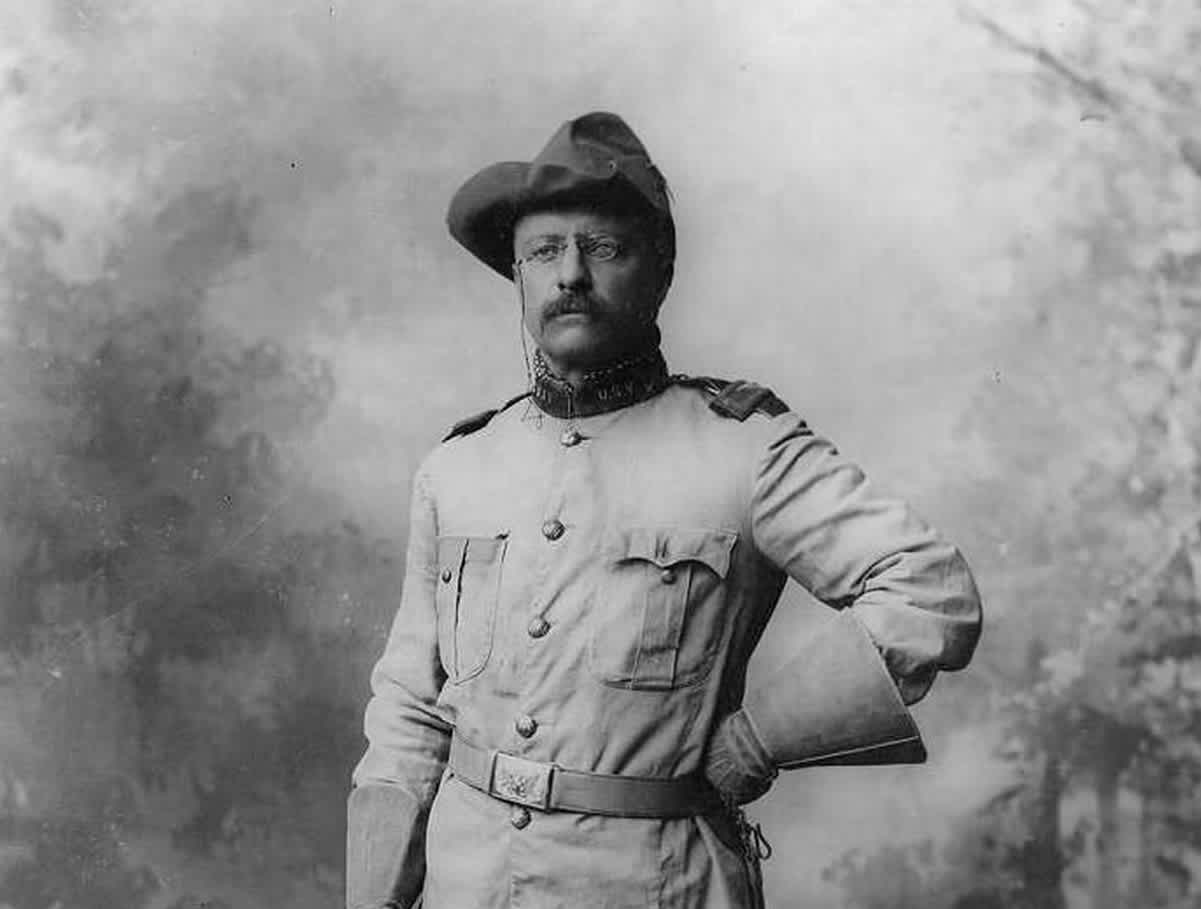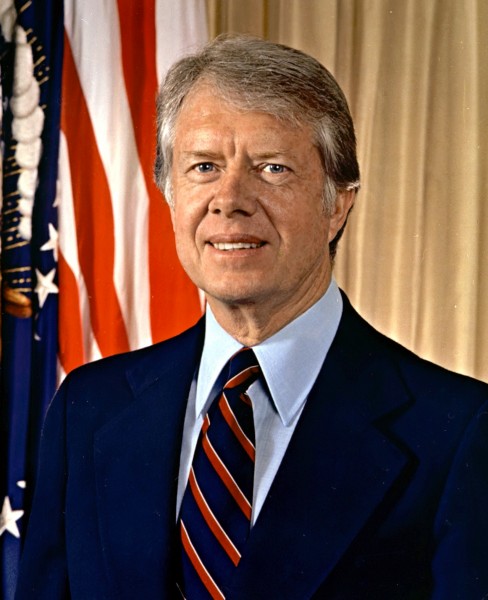America’s 5 Greatest Hunting Presidents
Daniel Xu 03.02.15

It should come as little surprise that a great many of our presidents are and were avid sportsmen, even though only about six percent of the American public hunts. In fact, by some reports more than half of the men in the Oval Office over the past 50 years were hunters—but the history of great hunting presidents stretches far beyond that. From the days of the original 13 colonies to the modern era, America has always carried the spirit of a frontier nation and it is an ideal embraced by many of our presidents. Here is our list of the five US presidents who were most likely to be found in the woods with a boomstick of some kind in hand.
1. Theodore Roosevelt
There is perhaps no more famous hunter in the history of the Oval Office than Theodore Roosevelt. Considered by many to be the “Father of Conservation,” Roosevelt was the iconic American sportsman and left behind a legacy that continues to guide conservationists and hunters today. Aside from his other contributions that raised America to the global stage, Roosevelt was fundamental in the formation of the United States Forestry Service and protecting more than 230 million acres of land for wildlife. Even his nickname, Teddy—which he is said to have despised—arose out of a hunting trip on which Roosevelt refused to shoot a young bear cub.
“The wildlife and its habitat cannot speak, so we must and we will,” Roosevelt is often quoted as saying.
Roosevelt first began to explore the outdoors as a young child to combat his asthma. Rigorous exercise and clean air eventually allowed him to overcome the illness, and in time Roosevelt became a renowned traveler. Indeed, the former Rough Rider hunted throughout North America and spearheaded a legendary hunting expedition into Central Africa on behalf of the Smithsonian Institution. His first experiences in hunting were in the backwoods of Maine, where he viewed the pursuit as an opportunity to learn about wildlife. As an adult, he loved the untamed wilds of the West.
“In hunting, the finding and killing of the game is after all but a part of the whole,” he wrote in The Wilderness Hunter. “The free, self-reliant, adventurous life, with its rugged and stalwart democracy; the wild surroundings, the grand beauty of the scenery, the chance to study the ways and habits of the woodland creatures—all these unite to give to the career of the wilderness hunter its peculiar charm. The chase is among the best of all national pastimes; it cultivates that vigorous manliness for the lack of which in a nation, as in an individual, the possession of no other qualities can possibly atone.”
2. George Washington
It is commonly known that George Washington had a keen interest in hunting dogs and hunting in general, but it is less known that the great general may have once called a cease fire during the American Revolutionary War to return a hunting hound. In an anecdotal story often repeated by dog breeders, American troops found a small dog wandering between the lines during the Battle of Germantown in 1777. The canine was picked up and presented to General Washington, who was told that it probably belonged to the British General William Howe. Washington’s advisers suggested that he keep the dog as a trophy, or to lower Howe’s morale, but Washington instead ordered the dog to be washed and cleaned. He then ordered a ceasefire and formally returned the dog to Howe in the middle of the battle.
Unfortunately for Washington, the Battle of Germantown ended in a solid British victory, but it did not detract from his show of sportsmanship. Before and after his military career, Washington was an avid waterfowler and fox hunter. It is suspected that he owned several dozen hunting dogs throughout his lifetime, although his time hunting from horseback was cut short after a bad fall later in his life.
3. Dwight D. Eisenhower
Born in Texas and raised in Kansas, Dwight D. Eisenhower was a well-known hunter and angler. As a young boy, Eisenhower would often walk the seven miles from his home to a local creek to fish, and later discovered a love for hunting birds. As Supreme Commander of the Allied Forces in Europe during WWII, Eisenhower oversaw the liberation of France and the invasion of Germany, yet the general also made time to go on a partridge hunt in North Africa. A lull on the Italian front allowed Eisenhower to take a rare day off, which he spent roaming around looking for birds with his chief-of-staff, General Walter Smith.
“There are three (sports) that I like all for the same reason—golf, fishing, and shooting—because they take you into the fields,” Eisenhower was quoted as saying once. “They induce you to take at any one time two to three hours, when you are thinking of the bird or ball or the wily trout. Now, to my mind, it is a very healthful, beneficial kind of thing, and I do it whenever I get a chance.”
4. Grover Cleveland
Grover Cleveland hunted just about everything and fished just about everything. According to some sources, the outdoors became an obsession to him, which he wholeheartedly admitted in his writings.
“There can be no doubt that certain men are endowed with a sort of inherent and spontaneous instinct which leads them to hunting and fishing indulgence as the most alluring and satisfying of all recreations,” he wrote in his book Fishing and Shooting Sketches. “In this view, I believe it may be safely said that the true hunter or fisherman is born, not made. I believe, too, that those who thus by instinct and birthright belong to the sporting fraternity and are actuated by a genuine sporting spirit, are neither cruel, nor greedy and wasteful of the game and fish they pursue; and I am convinced that there can be no better conservator the sensible and provident protection of game and fish than those who are enthusiastic in their pursuit, but who, at the same time, are regulated and restrained by the sort of chivalric fairness and generosity, felt and recognized by every true sportsman.”
Whether it was camping, fishing, or hunting a vast array of species, Cleveland was in his element outside. According to some sources, the president even assigned names to his individual rifles.
5. Jimmy Carter
Before his term in the White House or as Governor of Georgia, Jimmy Carter was a peanut farmer raised in rural Georgia. Carter once commented that he had a fishing pole and rifle in his hand since he could remember, and spent the majority of his youth hunting and fishing near Plains, Georgia. Those habits didn’t change once Carter took office, nor after.
“I have used weapons since I was big enough to carry one, and now own two handguns, four shotguns and three rifles, two with scopes,” he wrote in an op-ed to The New York Times in 2009. “I use them carefully, for hunting game from our family woods and fields, and occasionally for hunting with my family and friends in other places. We cherish the right to own a gun and some of my hunting companions like to collect rare weapons. One of them is a superb craftsman who makes muzzle-loading rifles, one of which I displayed for four years in my private White House office.”
Carter spent much of his vacation time during his term out hunting or fishing, despite taking only 79 days off the job—the least of all modern presidents.
As always, this list is just our opinion, so feel free to chime in with your opinion as well. Who do you think should count among the greatest hunting presidents?





